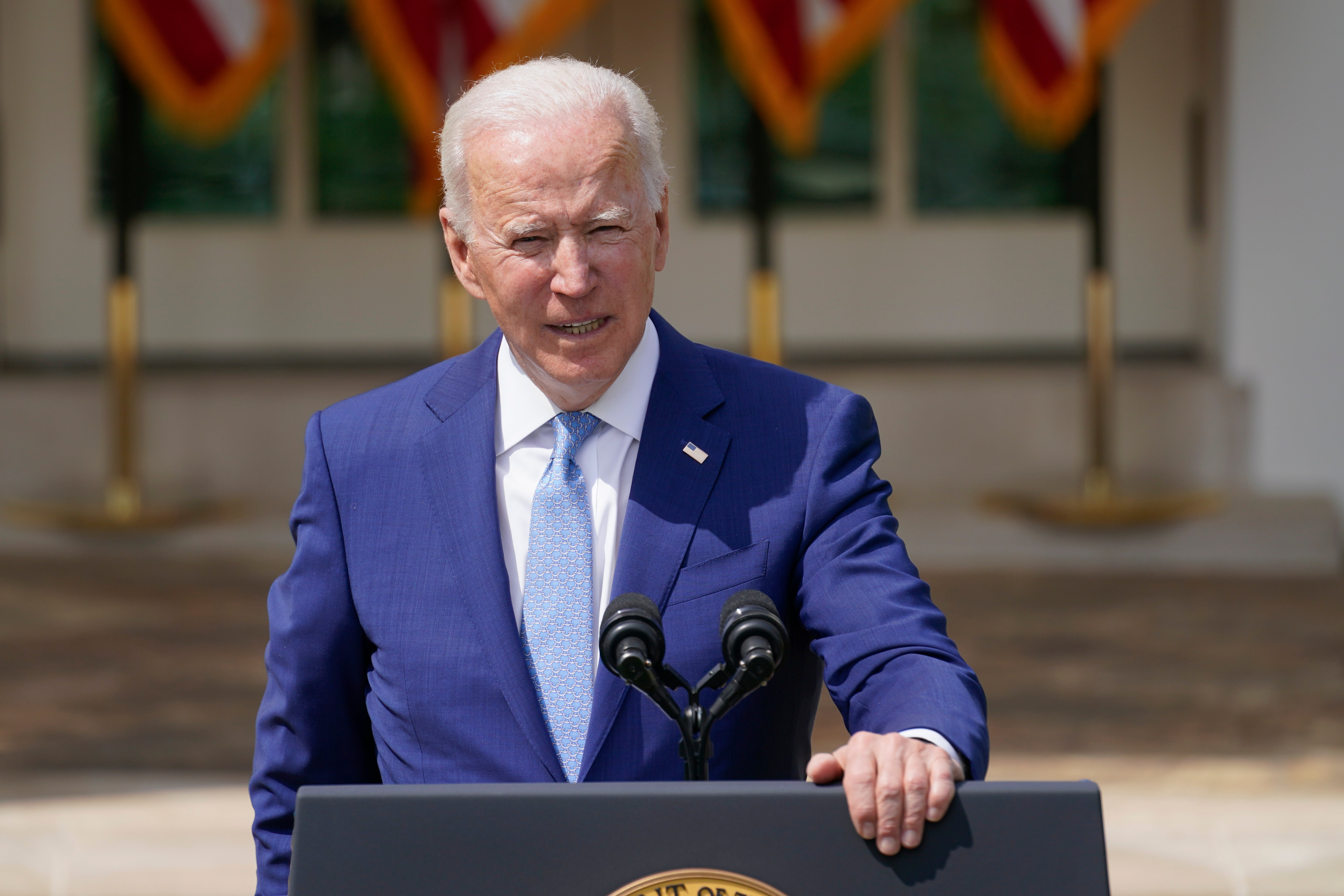Biden creates commission to study adding Supreme Court justices
The White House says a commission will study ‘the length of service and turnover of justices on the court; the membership and size of the court; and the court’s case selection, rules, and practices’

Your support helps us to tell the story
From reproductive rights to climate change to Big Tech, The Independent is on the ground when the story is developing. Whether it's investigating the financials of Elon Musk's pro-Trump PAC or producing our latest documentary, 'The A Word', which shines a light on the American women fighting for reproductive rights, we know how important it is to parse out the facts from the messaging.
At such a critical moment in US history, we need reporters on the ground. Your donation allows us to keep sending journalists to speak to both sides of the story.
The Independent is trusted by Americans across the entire political spectrum. And unlike many other quality news outlets, we choose not to lock Americans out of our reporting and analysis with paywalls. We believe quality journalism should be available to everyone, paid for by those who can afford it.
Your support makes all the difference.President Biden has ordered a 180-day study of the Supreme Court, including the possibility of adding more justices or setting term limits.
A bipartisan commission, the White House said in a statement, will study “the genesis of the reform debate and the court’s role in the constitutional system; the length of service and turnover of justices on the court; the membership and size of the court; and the court’s case selection, rules, and practices.”
Mr Biden signed the executive order on Friday afternoon. He had pledged to create such a commission while he was still running for president, after Justice Ruth Bader Ginsburg died and outgoing president Donald Trump replaced her with the conservative Amy Coney Barrett, tipping the scale of the court further to the right.
The president has not said whether he favors adding more seats to the court’s bench or setting limits on justices’ time there. During the presidential campaign, he largely defused the issue by promising to commission a study rather than saying what he would do.
“President Biden will today issue an executive order forming the Presidential Commission on the Supreme Court of the United States, comprised of a bipartisan group of experts on the Court and the Court reform debate,” the White House said shortly before the signing.
“The Commission’s purpose is to provide an analysis of the principal arguments in the contemporary public debate for and against Supreme Court reform, including an appraisal of the merits and legality of particular reform proposals,” it added.
The White House said the commissioners will include legal scholars, former federal judges, and “advocates for the reform of democratic institutions and of the administration of justice.”
Mr Biden has been under intense pressure to reform the court from left-wing activists, who argue that Republicans have unfairly stacked it with conservative justices.
In 2016, Senate Republicans, under the leadership of Mitch McConnell, refused to even hold a confirmation hearing for President Obama’s nominee, Merrick Garland, arguing that it was inappropriate to appoint a justice in an election year. Then, during the 2020 election, the Senate swiftly pushed through the appointment of Justice Barrett.
“There’s growing recognition that the Supreme Court poses a danger to the health and well-being of the nation and even to democracy itself,” Aaron Belkin, director of the advocacy group Take Back the Court, told The New York Times. “A White House judicial reform commission has a historic opportunity to explain the gravity of the threat and to help contain it by urging Congress to add seats, which is the only way to restore balance to the court.”
Opponents, however, view reforming the court as a power grab similar to President Franklin Roosevelt’s “court packing” scheme in the 1930s, when he attempted and failed to load the court with justices more amenable to his New Deal programs.
Justice Stephen Breyer weighed in on the issue this week, warning that anyone “whose initial instincts may favor important structural (or other similar institutional) changes, such as forms of ‘court-packing,’” should “think long and hard before embodying those changes in law.”
“I hope and expect that the court will retain its authority,” the Clinton-appointed justice said in a lecture to Harvard Law School students. “But that authority, like the rule of law, depends on trust – a trust that the court is guided by legal principle, not politics. Structural alteration motivated by the perception of political influence can only feed that perception, further eroding that trust.”
Join our commenting forum
Join thought-provoking conversations, follow other Independent readers and see their replies
Comments